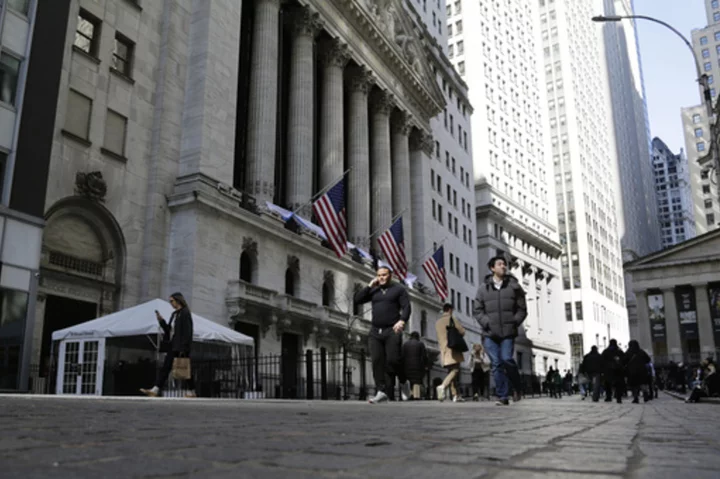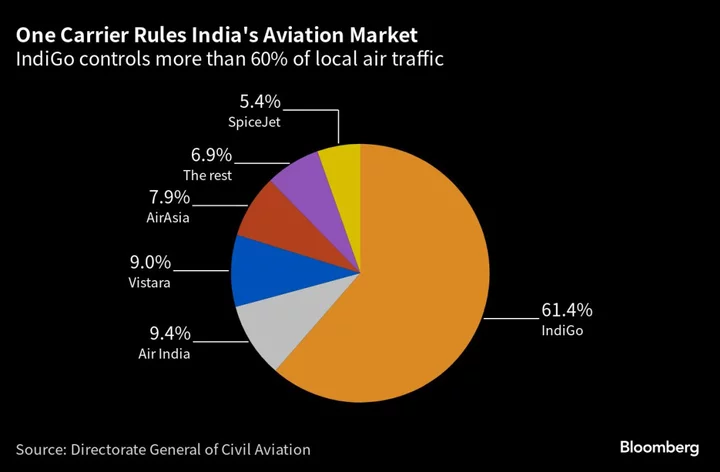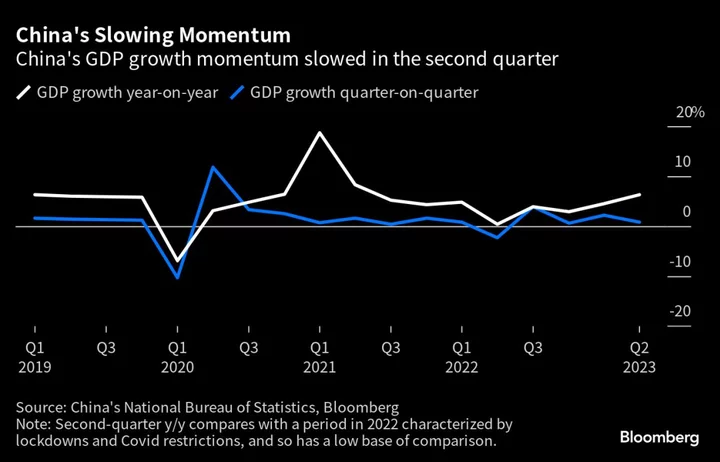NEW YORK (AP) — U.S. stocks are drifting Wednesday as Wall Street waits to hear what will come out of the Federal Reserve’s latest announcement on interest rates.
The S&P 500 was 0.2% higher in early trading, coming off its third straight losing month largely because of higher yields in the bond market. The Dow Jones Industrial Average was down 11 points, or less than 0.1%, as of 9:40 a.m. Eastern time, and the Nasdaq composite was 0.3% higher.
The Fed is wrapping up its latest meeting on interest-rate policy in the afternoon, and the overwhelming expectation is for it to hold its main interest rate steady for the second straight time. It’s already yanked the overnight rate above 5.25% from nearly zero early last year to its highest level since 2001. The big question is whether the Fed will give any hints about how long it will keep the rate high before cutting it to provide financial markets more oxygen.
Longer-term Treasury yields have been rising rapidly since the spring and catching up with the Fed’s overnight rate. They’ve rallied as the U.S. economy has remained remarkably resilient and the central bank has warned it will keep its short-term rate high for a long time. Worries about the U.S. government’s big borrowing needs have also pushed up yields, and the U.S. Treasury on Wednesday gave some details about how much it will increase its borrowing.
The yield on the 10-year Treasury dipped to 4.86% from 4.92% late Tuesday. Last month, it topped 5% to reach its highest level since 2007, up from less than 3.50% during the spring.
High yields knock down prices for stocks and other investments while making borrowing more expensive for nearly everyone. That slows the economy and puts pressure on the entire financial system.
The Fed has been saying it plans to keep rates high because it wants to ensure high inflation is on its way back down to its 2% target. Strong reports on the economy have recently raised worries about upward pressure on inflation, even if they’re also keeping a long-predicted recession at bay.
A report Wednesday morning from ADP suggested hiring by non-government employers accelerated last month, but not by as much as economists expected. A more comprehensive jobs report from the U.S. government will arrive on Friday.
In the background, big U.S. companies continue to report stronger profits for the summer than analysts expected, though that hasn’t been enough in recent weeks to offset worries about higher yields.
DuPont fell 4% despite reporting stronger profit for the latest quarter than analysts had forecast. The chemical company gave some financial forecasts for the full year of 2023 that fell short of analysts’ expectations as it sees weakness in China and other challenges.
On the winning side of Wall Street, Caesars Entertainment rose 1.2% after it reported stronger profit and revenue than expected. Its stock had struggled recently on worries that a slowing economy and possible recession would mean fewer visitors and gamblers.
In the oil market, prices continue to swing on uncertainty about whether the latest Israel-Hamas war will affect the production and movement of crude. A barrel of U.S. crude oil rose 2.4% to $82.98, while Brent crude gained 2.2% to $86.93.
Oil prices recently had dropped back below where they were before an Oct. 7 attack on Israel by Hamas. The region is not home to major oil production, but the fear is that the conflict could draw in Iran or other big oil-producing nations.
A barrel of U.S. oil had jumped from less than $70 in the summer to more than $93 just before the war.
In stock markets abroad, indexes were mostly higher across Europe and Asia.
___
AP Business Writers Matt Ott and Elaine Kurtenbach contributed.









